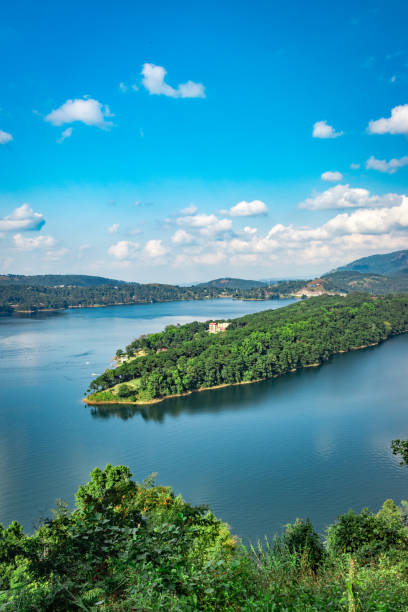Rivers are most necessary natural resources that play an important role in the economy of many countries. They provide water for drinking, irrigation, and industrial use and many more use also, and they also help to generate hydroelectric power. In addition, rivers can be used for transportation, recreation, and tourism also.
1. Irrigation
Rivers are a major source of water for irrigation use, which is most important for agriculture. In many countries, rivers provide the only source of water for irrigation. For example, in India, about 60% of the irrigated land is watered by rivers.
2. Transportation
Rivers have long been used as transportation routes in many countries. They are more efficient way to transport goods than roads or railways, especially in remote areas. For example, the ‘Mississippi River’ is a major transportation artery for the United States.
- Crypto Trading for Beginners: Learn How to Make Money from Cryptocurrency Trading
- Best Cryptocurrency to Invest in India: Update for 2025
- How to Invest in Cryptocurrency in India (2025 Updated)
- Wedding Planning Business: Tips and Ideas for Success
- Secret Websites to Make Money: Online Work For Students
3. Hydroelectric power
Rivers can be used to generate hydroelectric power, which is clean and renewable source of energy. Hydroelectric power is main source of electricity in many countries, including India, Norway, Brazil, and Canada.And it can help to reduce reliance on fossil fuels.
4. Fisheries
Rivers support very type of fish species, which provide food for people and animals. Fish farming is also an important industry in many countries. For example, China is the world’s largest producer of freshwater fish. Fishing is a major economic activity in many countries, such as China, India, and the United States.
5. Tourism
Rivers are popular tourist destinations for people. People enjoy swimming, boating, fishing, and other activities on rivers. Tourism is an important source of income for many countries. For example, the Nile River is a major tourist destination in Egypt.

6. Water supply
Rivers provide drinking water for people and animals. In many countries, rivers are the only source of drinking water. For example, the Ganges River is a major source of drinking water for millions people in India. They help to filter pollutants out of water and transport them to the ocean. Rivers also help to regulate the temperature of water.
7. Industrial use
Rivers are also used for industrial purposes, such as cooling power plants, transportation, waste disposal and manufacturing facilities. For example, in the United States, about 40% of the water used by industry comes from rivers and the ‘Rhine River’ is a major industrial river in Europe.
8. Ecosystems
Rivers are home for various plants and animals. They play an important role in the ecosystem by providing habitat and food for these species. Rivers also help to regulate the water cycle and prevent flooding. Biodiversity is important for the ecosystem and for human well-being.
- Business Idea
- Crypto Craze
- Earn Money Online
- Financial Planning
- Free Job Alert
- Innovative Ideas
- Loans
- Marketing & Branding
- Marketing Strategy
- Personal Finance
- Trading Tips
9. Cultural heritage
Rivers can be important role in human cultural and historical resources for centuries. They may be home to important archaeological sites or they may be associated with important cultural traditions. Rivers have also been a source of inspiration for art, literature, and music.

10. Stormwater management
Rivers can help to manage stormwater runoff. This can help to prevent flooding and erosion, which can protect property and infrastructure. It can help to adapt to climate change. They can provide a source of water during droughts and they can help to mitigate the effects of flooding.
Conclusion : Rivers are an important natural resources that play various role in the economy of many countries. They provide water for irrigation, drinking, and industrial use. They also help to generate hydroelectric power, transport goods, and support fishing and tourism industries. Rivers are also important for water quality, biodiversity, and culture.




